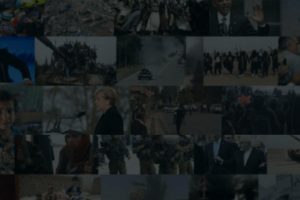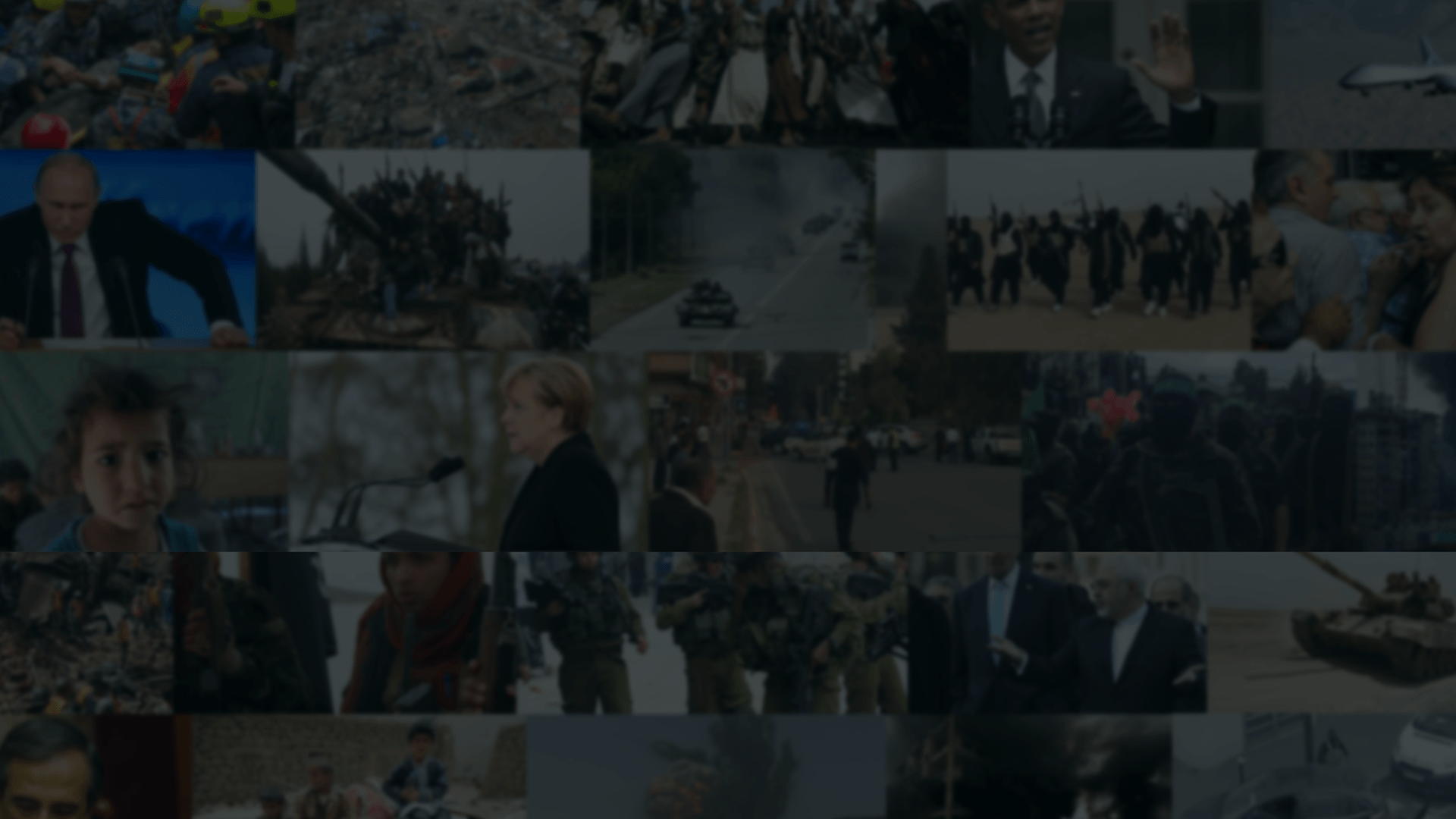On April 16, Turkish President Recep Tayyip Erdoğan claimed victory in a constitutional referendum that will change the country’s parliamentary system to a presidential one, greatly expanding powers of the head of state.
Unofficial returns from the state news agency Anadolu put the Yes vote at 51.3 percent and No at 48.7 percent.
Grasswire spoke to three experts about the consequences of the constitutional referendum, the campaign and the future of Turkey’s place in the EU and NATO.
Dr. Jenny White, Professor at Stockholm University Institute for Turkish Studies, Sweden. White is a writer and social anthropologist. She is the author of several books, including Muslim Nationalism and the New Turks.
Dr. Tozun Bahcheli, Professor of Political Science at King’s University College at the University of Western Ontario, Canada. He has written extensively on Turkish foreign policy issues, including Cypriot politics.
Dr. Lisel Hintz, Visiting Assistant Professor at Political Science Department, Columbia University’s Barnard College, New York. She focuses on Turkey and the Middle East. Her forthcoming book is titled Identity Politics Inside Out: National Identity Contestation and Foreign Policy in Turkey.
Grasswire also reached out to several experts who support the constitutional change and the Turkish president, including a representative of the AKP, but got no response.
The campaign
Monitors with the Organization for Security and Cooperation in Europe said in an April 17 statement that the Turkish referendum was contested on an “unlevel playing field.”
The OSCE said the voting process was well administered, but voters were not provided with impartial information about key aspects of the reforms, and that limitations to fundamental freedoms had a negative effect.
Do you agree with the OSCE’s observations that the two sides had unequal opportunities during the campaign?
White
The OSCE is the ultimate arbiter, but their decision is based in part on practices that were quite openly carried out by the government and its supporters. For instance, most No campaigns were broken up, campaigners beaten, their banners/posters torn down.
In the media, Yes got 90% of the coverage, No was barely covered. There was immense intimidation of voters, with government officials, including the president, calling No voters terrorists, a label that in Turkey today normally leads to arrest.
Bahcheli
Yes, very much so. Members of the Council of Europe observer mission, as well as the members of the Organization for Security and Cooperation in Europe mission almost unanimously reported numerous cases of irregularities and fraud in the referendum in support of the Yes vote.
An Austrian member of the Council of Europe observer mission alleged that as many as 2.5 million votes could have been manipulated in favor of the Yes camp. The Justice and Development Party (the AKP) used state resources massively to secure the Yes vote in support of President Erdoğan’s bid to create an executive presidency. The state-controlled media gave scant airtime to members of the opposition.
As well, the government controls or influences most of the private media which towed the government line. In short, the contest between the government and the opposition was blatantly unequal.
Hintz
It is abundantly clear that the media playing field was far from fair. Studies show media coverage of the Yes campaign received about 90 percent of airtime.
Further, President Erdoğan cleverly got around the regulation that the Turkish president be non-partisan by giving Yes speeches at rallies at various opening ceremonies or announcements of emergency decrees.
In one bizarre case of the later, Erdoğan held a Yes rally while announcing an emergency decree allowing beauticians to perform laser hair removal with hospital-grade equipment. An unlikely campaign site, but an effective one.
Human and civil rights
Do you believe that civil and/or human rights will be restricted because of the vote?
White
They have been restricted for some time, particularly after the failed coup attempt in July 2016, after which the government began an unprecedented purge of its perceived enemies.
Bahcheli
It is hard to imagine that civil and human rights protection can get worse given the draconian control that Erdoğan’s government has exercised over Turkish society in recent years, but it is possible.
About 150 journalists, 13 members of parliament, and over 45, 000 others are in jail. As well, over 130, 000 people, mostly academics, civil servants, and police, have been dismissed on suspicions of disloyalty.
The constitutional changes that will be come into effect shall confer almost absolute power to the president. It is conceivable that the purge of opponents since the failed 2016 coup against will continue in the coming months.
With the expected transition from parliamentary to presidential system, President Erdoğan will have few restrains on exercising power. And, if he continues to win elections, he will remain president until 2029, and perhaps beyond.
Hintz
Human rights and civil rights were restricted before the vote – in extreme form during the state of emergency imposed following the July 2016 coup attempt – they were restricted during the vote – there are many documented instances of No voters being harassed, beaten, and imprisoned – and they will continue to be restricted following the vote.
Free speech for journalists, academics, and anyone in the opposition is dead in Turkey.
Unstamped ballots
In a controversial move, Turkey’s Supreme Election Council (Yüksek Seçim Kurulu, YSK) announced on the day of the referendum via a pop-up on its website that envelopes and ballots without the official stamp would be counted as valid votes unless there is evidence they were brought from outside.
What do you think about the YSK’s decision?
White
It opened the way to ballot-stuffing and makes fraud very likely and less detectable. Statistical analysis of the vote results by district already show inconsistencies, such as very high Yes (pro-AKP) votes in districts that in past elections had been most strongly against AKP. Those were also the districts reporting the most unstamped ballots.
Bahcheli
The YSK’s decision was unconscionable and cannot be justified.
Hintz
The YSK’s decision to accept ballots without the official stamp is unlawful and unprecedented in Turkey. Particularly because the decision came under government pressure, the independence of the YSK can no longer be an effective check on the ruling party’s power.
NATO and the EU
Will the outcome of the referendum affect Turkey’s approach to NATO and/or EU?
White
President Erdoğan has said he would push for the death penalty, which would mean automatic termination of its EU accession process. For the past couple of years, Turkey has been tilting toward Russia and Eurasia and away from NATO and the West. This is not a tilt toward the Islamic Middle East, but a search for a new power configuration.
Bahcheli
Given Erdoğan’s strong rhetoric against some of the EU states and Brussels, the outlook on EU-Turkey relations is poor.
Like many Turks, Erdoğan does not believe that the EU will ever admit Turkey as a member state and may take a harder line on cooperating with Europe.
In the short term, this may imperil the controversial migrant deal between Turkey and the EU which provided Turkey with financial aid in return for Turkish restrictions on the refugee/migrant flow to Europe.
Turkey may assume a less cooperative role in NATO but it has become more and more isolated in recent years and its adversaries in the region have proliferated, so Ankara will see no incentive to look for alternatives to its NATO membership.
While Turkey’s relationship with leading NATO members may occasionally become strained, its membership, and its considerable geopolitical assets, confer it a strong voice in the security organization.
Hintz
The prospects for Turkey’s EU accession dimmed long before the referendum, with serious reservations on both sides impeding progress. Erdoğan’s referral to Europeans as Nazis, fascists and racists following the Dutch crisis served both to rally domestic support to his cause among those suspicious and resentful of the EU, but also reinforces previously hostile rhetoric toward Europe from Ankara.
Kemalism
Mustafa Kemal Atatürk, the founder and the first president of the Turkish Republic, introduced a number of ideas and principles to guide the new state. They are known as Kemalism and serve as Turkey’s official ideology. The ideas were outlined in the Statutes of the Republican People’s Party (Cumhuriyet Halk Partisi, CHP) in 1935. They include republicanism, nationalism, populism, revolutionism, secularism and statism.
Is this the end of Kemalism?
White
Kemalism as a socially and politically viable ideology has been dead for more than a decade, replaced by Muslim Turkish nationalism that is focused not on Turkish blood and the Turkish Republic, but on a common Ottoman imperial past and shared Muslim identity.
Bahcheli
The president is a cunning leader who believes in gradual change. Consider how he patiently waited for the right conditions to satisfy a major Islamist demand to remove the ban on headscarves in Turkish Universities and the public service.
There is no doubt that Erdoğan is on a mission to expand the role of religion in the country and thus the secular Kemalist order can be expected to gradually erode under his leadership.
At the same time, it is difficult to imagine that he can bring about anything that resembles sharia-based rule in Turkey. The secularist camp in Turkey has been weakened in recent years but will fight vigorously against such an outcome.
Hintz
Kemalism is a contentious term that has come to take on a pejorative connotation of infatuation with Atatürk. In my own research, I use the term Republican Nationalism to refer to an understanding of Turkish identity that is grounded in Atatürk’s principles, particularly secularism, and that sees Turkey’s foreign policy orientation as rooted in Western traditions.
What I refer to as the AKP’s Ottoman Islamist understanding of Turkish identity has been spread throughout Turkey’s society and institutions, but still faces great opposition from those who reject an understanding of Turkey bolstered by Ottoman legacies and manifested in a widened space for Islam in the public sphere. We saw this opposition in the Gezi Protests, and it certainly has not faded away.
Fahrettin Altun, General Coordinator for the SETA Foundation, said in one of his columns for Daily Sabah that the referendum was not about Erdoğan or the AKP, but constituted a shift from a disfunctional “old-style parliamentarianism” to a new administrative system.
President Erdoğan has dismissed concerns of the European leaders after the referendum and told OSCE observers to “know their place.”
“The crusader mentality in the West and its servants at home have attacked us,” Erdoğan said addressing supporters after the OSCE report.


